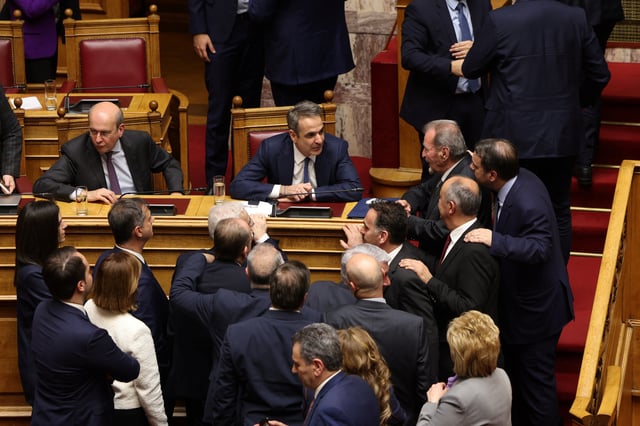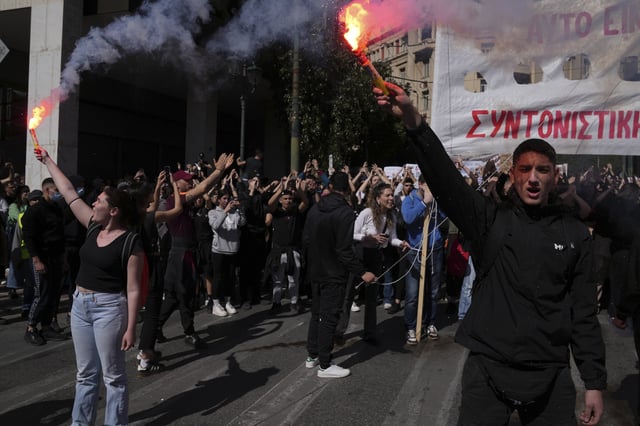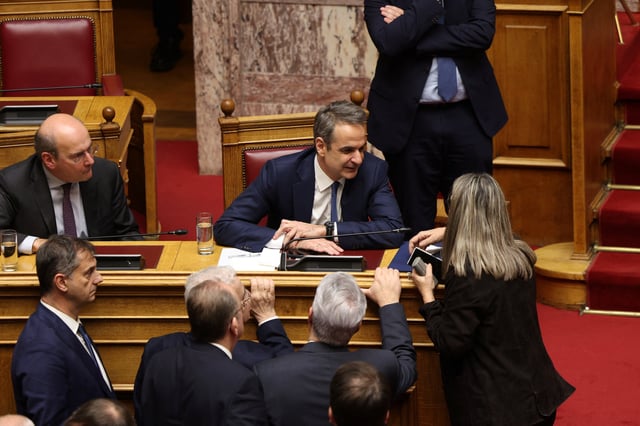Overview
- The Greek government, led by Prime Minister Kyriakos Mitsotakis, survived a no-confidence vote in parliament with 157 lawmakers rejecting the motion.
- The vote followed widespread protests marking the second anniversary of the 2023 train crash in Tempi, which killed 57 people and exposed severe safety failures in Greece's railway system.
- Opposition parties accused the government of negligence, failing to address railway safety issues, and attempting to cover up evidence related to the crash investigation.
- Protests, some involving violent clashes, have drawn hundreds of thousands of demonstrators demanding justice for the victims and accountability from officials.
- Mitsotakis pledged to modernize the railway system by 2027 and proposed changes to constitutional protections for politicians as part of efforts to address public anger.



